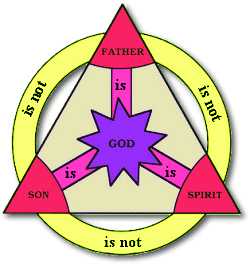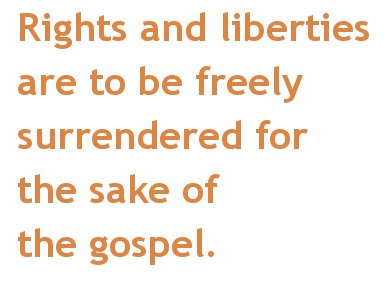
By Joseph E. Torres
Tom: [Closing Statements] Your transcendental argument is just another more clever and harder to refute explanation for Christianity. I would have to concede that your gift of the word and skills in field of debate don't permit me any reasonable chance of influencing you in any way and all I've got is something in my heart that tells every fiber of my being that Christianity stinks. Something at its core is false.
Why all the ambiguity? All it would take to make a believer out of me, and all of the world, is one more global divine intervention. I hope in my years to come I can put my instincts into the form of a more intelligent argument than what I have presented so far. I believe all we have in life is the progression of human thought, and TAG doesn't require that. It seems to have done all the thinking for us.
You once asked me if I'm a materialist. I guess you could say so. I think everything has a physical explanation, but of course I don't believe all physical explanations have been accounted for, nor do I believe they will be anytime soon. There is simply too much in our universe and our minds to have it explained in the mere 50,000 years of intelligent thought our species has known thus far. Again, your skill with the written word is too cunning for my 19 years of experience to compete with. All I have is what you would call faith; faith that your worldview is complete and wrong, and that mine is very much incomplete but at least heading in the right direction. Thanks for a good discussion.
Joe: [Closing statements to readers of the original conversation online]: To the readers of this post, I ask a series of questions. Were Tom's objections to Christianity really based upon logic, reason, and superior moral reasoning? Was the real issue at hand that we Christians operate on "blind faith" while atheists reason from "the facts"? Or, perhaps, is it one type of faith against another type of faith? I submit to you that in this conversation is the collision between two antithetical worldviews. This is the difference between blind faith and faith in the objective revelation of God's word.
I have argued that unless the Triune God of the Bible lives, there are no such things as objective moral values, no uniformity to nature (making the start of science impossible), no human dignity, or laws of rationality to be violated in intelligent debate. Tom, on the other hand, has brought to the facts a philosophy that he would have us believe he derived from the facts. But this is not so. Have we attempted to argue consistently from within our worldviews? Yes, I believe that we both have. But I assert that Tom has had to borrow from my worldview in order to launch an attack against it. I, on the other hand, argue that unless my worldview is already true then rational discourse doesn't even make sense; it is not intelligible. I've tried to present arguments that prove the truth of the Christian worldview from the impossibility of the contrary. This is what is called a transcendental negative argument.
I would, in closing, like to make one thing perfectly clear. I do not claim to be wiser, more intelligent, or more righteous than any of those with whom I speak. I did not cleverly work my way up the philosophical ladder to figure out the existence of God. God has revealed himself in Scripture. I examine myself and my world in light of this Word. I, too, once rejected God's word, and thus am no better than anyone. If anything, I have been humbled because of his gracious and sovereign love for me and love that I did not and still do not deserve. God, through his Spirit, has given me new eyes to see the world with the lenses of Scripture. I thank you for your time, and Tom for his cooperation.
Closing Comments to Current Readers
My hopes for my current readers regarding this dialogue are: 1) that the confusion and repetition of concepts will not turn off close analysis of what's going on there; and 2) that the jargon used will not hinder understanding. Now, I'd like to interpret what has happened in these last few pages.
The transcendental apologetic formulated by Cornelius Van Til is largely unknown by most unbelievers. Those of the evidentialist camp are far better at popularizing their arguments than are the presuppositionalists. Because of this, most unbelievers don't know what to do with a transcendentally oriented apologetic argument. It offends their sensibilities, but a cogent or informed refutation is difficult to construe. I believe that evidentialists have too often argued what I call "second order" arguments. I define these as arguments that work from common grace benefits (beliefs in design, morality, science, logic, etc.). Now, there's nothing wrong with building on shared premises, that is until the unbeliever self-consciously argues epistemologically. When this happens, a "first order" argument is needed (arguments that challenge the unbeliever to account for the intelligibility of such notions).
First order arguments can easily expose the rationalist/irrationalist dialectical tension in non-Christian thought. Tom sought to construct a worldview based upon naturalism, stating, " I think everything has a physical explanation". This is rationalism in the Van Tillian sense; Tom explicitly says "everything". But, exposing his irrationalist streak, he added, "But of course, I don't believe all physical explanations have been accounted for, nor do I believe they will be anytime soon". Here Tom engages what Francis Schaeffer called an "upper story leap". Though without proof, or any rational explanation on his own basis, he insisted that such necessary concepts (love, justice, rationality, the uniformity of nature, morality, etc.) must, and one day will, be explained naturalistically. This is irrational belief that runs contrary to the worldview he espoused.
In closing, I offer the words of the Apostle Paul in 1 Corinthians 1:20-24:
Where is the wise man? Where is the scribe? Where is the debater of this age? Has not God made foolish the wisdom of the world? For since in the wisdom of God the world through its wisdom did not come to know God, God was well-pleased through the foolishness of the message preached to save those who believe. For indeed Jews ask for signs and Greeks search for wisdom; but we preach Christ crucified, to Jews a stumbling block and to Gentiles foolishness, but to those who are the called, both Jews and Greeks, Christ the power of God and the wisdom of God. (1Cor. 1:20-24 NASB)
Notes
1.Num. 23:19; Mal. 3:6; Tit. 1:2; Heb. 1:11-12; 6:12; Jam. 1:17
Reformed Perspectives Magazine, Volume 8, Number 12, March 19 to March 25, 2006






 The limits on this trans-denominational unity are set by Scripture itself. We cannot welcome into our circle of fellowship people who deny truths that are essential to the gospel (2 John 7-11); and we cannot embrace people who affirm a gospel Scripture condemns (Gal. 1:18-19). The gospel and all truths essential to it are therefore nonnegotiable points of doctrine, and unity on these matters is a prerequisite to any other kind of unity.
The limits on this trans-denominational unity are set by Scripture itself. We cannot welcome into our circle of fellowship people who deny truths that are essential to the gospel (2 John 7-11); and we cannot embrace people who affirm a gospel Scripture condemns (Gal. 1:18-19). The gospel and all truths essential to it are therefore nonnegotiable points of doctrine, and unity on these matters is a prerequisite to any other kind of unity.









 Few passages of Scripture are more popular among contemporary Christians than 1 Corinthians 9:19‐23. Especially fashionable is Paul’s line in verse 22 about becoming “all things to all men.” This passage is commonly taken to mean that effective evangelism requires Christians to imitate the people around them. Many evangelicals cannot even imagine this interpretation being mistaken. It is even repeated by some fairly reputable commentators (Gordon Fee, for example) who, however, offer few reasons for accepting it.
Few passages of Scripture are more popular among contemporary Christians than 1 Corinthians 9:19‐23. Especially fashionable is Paul’s line in verse 22 about becoming “all things to all men.” This passage is commonly taken to mean that effective evangelism requires Christians to imitate the people around them. Many evangelicals cannot even imagine this interpretation being mistaken. It is even repeated by some fairly reputable commentators (Gordon Fee, for example) who, however, offer few reasons for accepting it. Few such reasons exist. The popular interpretation is far more influenced by wishful thinking than it is by any factor in the context of 1 Corinthians 9. In fact, a careful study of the passage in its context yields quite a different interpretation.
Few such reasons exist. The popular interpretation is far more influenced by wishful thinking than it is by any factor in the context of 1 Corinthians 9. In fact, a careful study of the passage in its context yields quite a different interpretation. 

